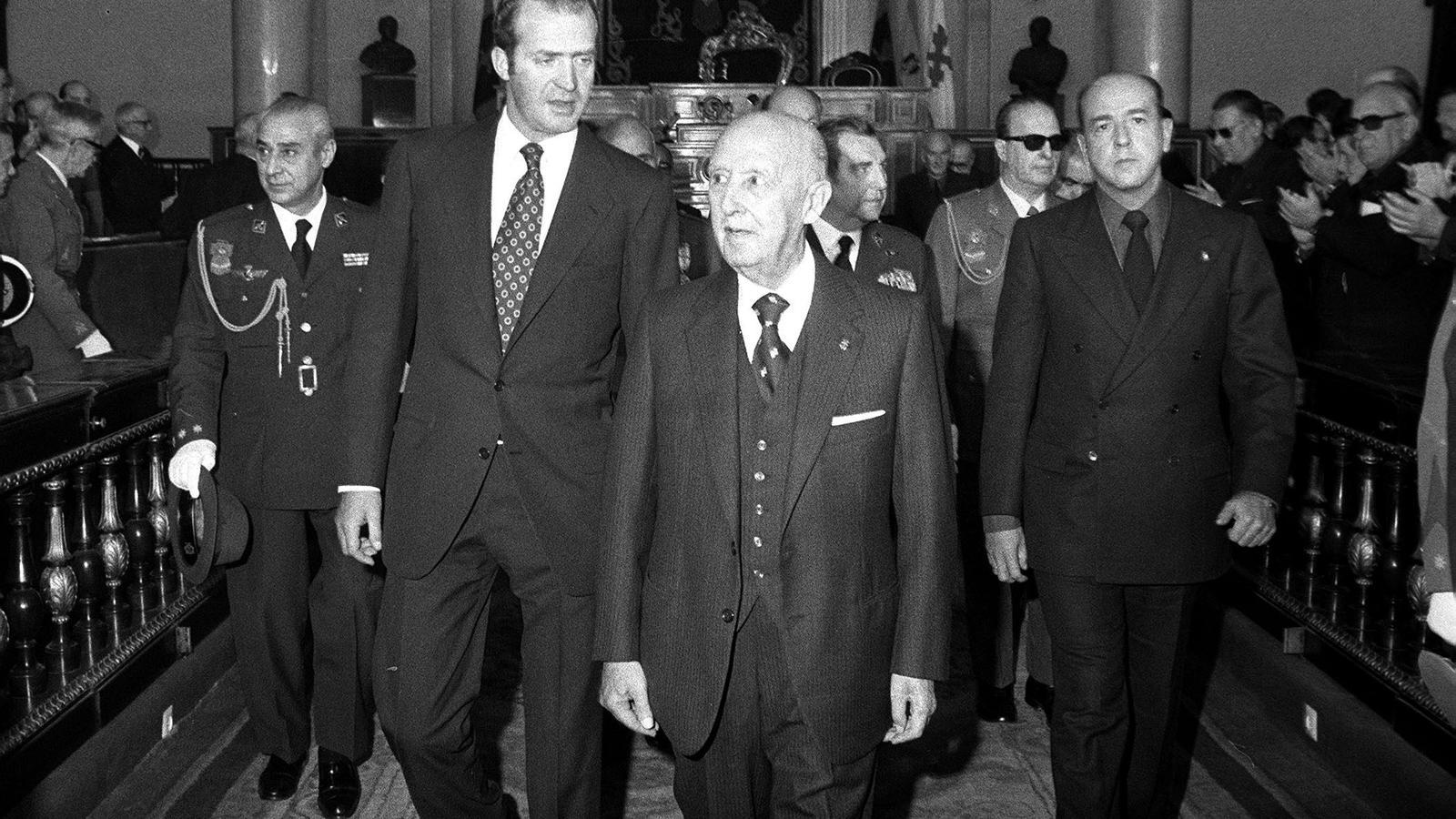The dictator was reasonably pleased


There are reasons to suppose that, if the dictator Franco were to rise from the dead (or if he could simply follow current events with otherworldly eyes, watching television, for example, in the company of his good friend Adolf Hitler, as we see him doing in Miquel Ferreres's cartoons in this newspaper), he might feel reasonably satisfied with his life. He might also be satisfied with the effects of the civil war he provoked, along with a mix of rebellious military officers, unscrupulous fascists (if you'll pardon the redundancy), and bishops who did prefer to have their kingdom in this world, accompanied (let's not forget, now as a hundred years ago) by a divisive and poisonous press that was truly vitriolic.
Franco—himself a bloodthirsty murderer and a thief with a pathological relationship with money and property—could not only be pleased by the uproar and deep division caused by the fiftieth anniversary of his death, signs of undeniable vitality. He could also be proud that the party founded by six of his ministers (with one of his favorites, Manuel Fraga Iribarne, at the helm), initially called the People's Alliance and later the People's Party, has remained steadfast all these years without ever condemning Francoism. More importantly, the party in question remains the most important in the Spanish political system, even though it is currently out of government and led by rather inept leaders. Even more significant, the party has suffered a splinter group called Vox, which chooses not merely to refrain from condemning Francoism, but to openly and unabashedly defend it, celebrating by raising their arms in the fascist salute and shouting Long live Franco! In their public acts, they act with complete impunity, even though this is prohibited by the Democratic Memory Law. Because—and this is perhaps even more important than the points mentioned above—there is a judicial and a police leadership tasked with safeguarding the ideological, political, and institutional legacy of Francoism, regardless of what the enemies of Spain say or what laws they pass. And—even more importantly than the rest—the Constitution that citizens were forced to vote for in '78 remains intact, amid overwhelming disinformation and a lack of public debate, under the tutelage of the coup-plotting military officers, and with the aforementioned Fraga Iribarne, mind you, among the so-called "fathers" of the constitution. Even the young man to whom the continuity of the regime was delegated, that King Juan Carlos, who at one point seemed rebellious, is now publishing a fabricated memoir in which he lavishes praise on Franco.
He would be upset if there were a European Union in favor of applying an amnesty in separatists Catalans, and also that Azaña's people would return to power in Spain with the support of Catalans, Basques, and other extremists, but this can always be resolved with a good dose of violence. Europe, in principle, doesn't allow it either, but Europe is becoming interesting again for...
